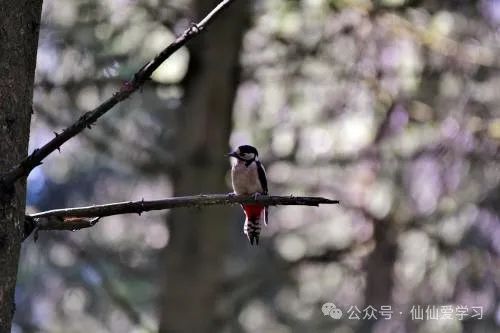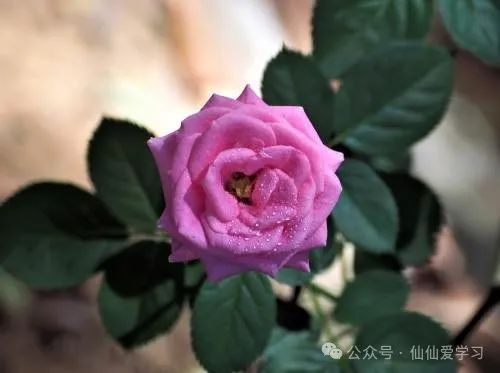高考地理答题模板构建与破译(88个)我学了,感觉非常不错,受益匪浅!
需要的宝子+\\/♥:nzc890
相关其他课程都有:咨询方式♥V:nzc890



answer she ought to make; then said,
"Mademoiselle Alexandre has a penance to perform, and a class-lesson to give; but I should be very sorry to let you put yourself to the trouble of coming here all to no purpose. I am going to send for her. Only first allow me, Monsieur--as is our custom--to put your name on the visitors' register."
She sat down at the table, opened a large copybook, and, taking out Maitre Mouche's letter again from under her pelerine, where she had placed it, looked at it, and began to write.
"'Bonnard'--with a 'd,' is it not?" she asked. "Excuse me for being so particular; but my opinion is that proper names have an orthography. We have dictation-lessons in proper names, Monsieur, at this school--historical proper names, of course!"
After I had written down my name in a running hand, she inquired whether she should not put down after it my profession, title, quality--such as "retired merchant," "employe," "independent gentleman," or something else. There was a column in her register expressly for that purpose.
"My goodness, Madame!" I said, "if you must absolutely fill that column of yours, put down 'Member of the Institute.'"
It was still Mademoiselle Prefere's pelerine I saw before me; but it was not Mademoiselle Prefere who wore it; it was a totally different person, obliging, gracious, caressing, radiant, happy. Her eyes, smiled; the little wrinkles of her face (there were a vast number of them!) also smiled; her mouth smiled likewise, but only on one side. I discovered afterwards that was her best side. She spoke: her voice had also changed with her manner; it was now sweet as honey.
"You said, Monsieur, that our dear Jeanne was very intelligent. I discovered the same thing myself, and I am proud of being able to agree with you. This young girl has really made me feel a great deal of interest in her. She has what I call a happy disposition.... But excuse me for thus drawing upon your valuable time."
She summoned the servant-girl, who looked much more hurried and scared than before, and who vanished with the order to go and tell Mademoiselle Alexandre that Monsieur Sylvestre Bonnard, Member of the Institute, was waiting to see her in the parlour.
Mademoiselle Prefere had barely time to confide in me that she had the most profound respect for all decisions of the Institute--whatever they might be--when Jeanne appeared, out of breath, red as a poppy, with her eyes very wide open, and her arms dangling helplessly at her sides--charming in her artless awkwardness.
"What a state you are in, my dear child!" murmured Mademoiselle Prefere, with maternal sweetness, as she arranged the girl's collar.
Jeanne certainly did present an odd aspect. Her hair combed back, and imperfectly held by a net from which loose curls were escaping; her slender arms, sheathed down to the elbows in lustring sleeves; her hands, which she did not seem to know what to do with, all red with chillblains; her dress, much too short, revealing that she had on stockings much too large for her, and shoes worn down at the heel; and a skipping-rope tied round her waist in lieu of a belt,--all combined to lend Mademoiselle Jeanne an appearance the reverse of presentable.
"Oh, you crazy girl!" sighed Mademoiselle Prefere, who now seemed no longer like a mother, but rather like an elder sister.
Then she suddenly left the room, gliding like a shadow over the polished floor.
I said to Jeanne,
"Sit down, Jeanne, and talk to me as you would to a friend. Are you not better satisfied here now than you were last year?"
She hesitated; then answered with a good-natured smile of resignation,
"Not much better."
I asked her to tell me about her school life. She began at once to enumerate all her different studies--piano, style, chronology of the Kings of France, sewing, drawing, catechism, deportment... I could never remember them all! She still held in her hands, all unconsciously, the two ends of her skipping-rope, and she raised and lowered them regularly while making her enumeration. Then all at once she became conscious of what she was doing, blushed, stammered, and became so confused that I had to renounce my desire to know the full programme of study adopted in the Prefere Institution.
After having questioned Jeanne on various matters, and obtained only the vaguest of answers, I perceived that her young mind was totally absorbed by the skipping-rope, and I entered bravely into that grave subject.
"So you have been skipping?" I said. "It is a very nice amusement, but one that you must not exert yourself too much at; for any excessive exercise of that kind might seriously injure your health, and I should be very much grieved about it Jeanne--I should be very much grieved, indeed!"
"You are very kind, Monsieur," the young girl said, "to have come to see me and talk to me like this. I did not think about thanking you when I came in, because I was too much surprised. Have you seen Madame de Gabry? Please tell me something about her, Monsieur."
"Madame de Gabry," I answered, "is very well. I can only tell you about her, Jeanne, what an old gardener once said of the lady of the castle, his mistress, when somebody anxiously inquired about her: 'Madame is in her road.' Yes, Madame de Gabry is in her own road; and you know, Jeanne, what a good road it is, and how steadily she can walk upon it. I went out with her the other day, very, very far away from the house; and we talked about you. We talked about you, my child, at your mother's grave."
"I am very glad," said Jeanne.
And then, all at once, she began to cry.
I felt too much reverence for those generous tears to attempt in any way to check the emotion that had evoked them. But in a little while, as the girl wiped her eyes, I asked her,
"Will you not tell me, Jeanne, why you were thinking so much about that skipping-rope a little while ago?"
"Why, indeed I will, Monsieur. It was only because I had no right to come into the parlour with a skipping-rope. You know, of course, that I am past the age for playing at skipping. But when the servant said there was an old gentleman...oh!...I mean...that a gentleman was waiting for me in the parlour, I was making the little girls jump. Then I tied the rope round my waist in a hurry, so that it might not get lost. It was wrong. But I have not been in the habit of having many people come to see me. And Mademoiselle Prefere never lets us off if we commit any breach of deportment: so I know she is going to punish me, and I am very sorry about it."...
"That is too bad, Jeanne!"
She became very grave, and said,
"Yes, Monsieur, it is too bad; because when I am punished myself, I have no more authority over the little girls."
I did not at once fully understand the nature of this unpleasantness; but Jeanne explained to me that, as she was charged by Mademoiselle Prefere with the duties of taking care of the youngest class, of washing and dressing the children, of teaching them how to behave, how to sew, how to say the alphabet, of showing them how to play, and, finally, of putting them to bed at the close of the day, she could not make herself obeyed by those turbulent little folks on the days she was condemned to wear a night-cap in the class-room, or to eat her meals standing up, from a plate turned upside down.
Having secretly admired the punishments devised by the Lady of the Enchanted Pelerine, I responded:
"Then, if I understand you rightly, Jeanne, you are at once a pupil here and a mistress? It is a condition of existence very common in the world. You are punished, and you punish?"
"Oh, Monsieur!" she exclaimed. "No! I never punish!"
"Then, I suspect," said I, "that your indulgence gets you many scoldings from Mademoiselle Prefere?"
She smiled, and blinked.
Then I said to her that the troubles in which we often involve ourselves, by trying to act according to our conscience and to do the best we can, are never of the sort that totally dishearten and weary us, but are, on the contrary, wholesome trials. This sort of philosophy touched her very little. She even appeared totally unmoved by my moral exhortations. But was not this quite natural on her part?--and ought I not to have remembered that it is only those no longer innocent who can find pleasure in the systems of moralists?... I had at least good sense enough to cut short my sermonising.
"Jeanne," I said, "you were asking a moment ago about Madame de Gabry. Let us talk about that Fairy of yours She was very prettily made. Do you do any modelling in wax now?"
"I have not a bit of wax," she exclaimed, wringing her hands--"no wax at all!"
"No wax!" I cried--"in a republic of busy bees?"
She laughed.
"And, then, you see, Monsieur, my FIGURINES, as you call them, are not in Mademoiselle Prefere's programme. But I had begun to make a very small Saint-George for Madame de Gabry--a tiny little Saint-George, with a golden cuirass. Is not that right, Monsieur Bonnard--to give Saint-George a gold cuirass?"
"Quite right, Jeanne; but what became of it?"
"I am going to tell you, I kept it in my pocket because I had no other place to put it, and--and I sat down on it by mistake."
She drew out of her pocket a little wax figure, which had been squeezed out of all resemblance to human form, and of which the dislocated limbs were only attached to the body by their wire framework. At the sight of her hero thus marred, she was seized at once with compassion and gaiety. The latter feeling obtained the mastery, and she burst into a clear laugh, which, however, stopped as suddenly as it had begun.
Mademoiselle Prefere stood at the parlour door, smiling.
"That dear child!" sighed the schoolmistress in her tenderest tone. "I am afraid she will tire you. And, then, your time is so precious!"
I begged Mademoiselle Prefere to dismiss that illusion, and, rising to take my leave, I took from my pocket some chocolate-cakes and sweets which I had brought with me.
"That is so nice!" said Jeanne; "there will be enough to go round the whole school."
The lady of the pelerine intervened.
"Mademoiselle Alexandre," she said, "thank Monsieur for his generosity."
Jeanne looked at her for an instant in a sullen way; then, turning to me, said with remarkable firmness,
"Monsieur, I thank you for your kindness in coming to see me."
"Jeanne," I said, pressing both her hands, "remain always a good, truthful, brave girl. Good-bye."
As she left the room with her packages of chocolate and confectionery, she happened to strike the handles of her skipping- rope against the back of a chair. Mademoiselle Prefere, full of indignation, pressed both hands over her heart, under her pelerine; and I almost expected to see her give up her scholastic ghost.
When we found ourselves alone, she recovered her composure; and I must say, without considering myself thereby flattered, that she smiled upon me with one whole side of her face.
"Mademoiselle," I said, taking advantage of her good humour, "I noticed that Jeanne Alexandre looks a little pale. You know better than I how much consideration and care a young girl requires at her age. It would only be doing you an injustice by implication to recommend her still more earnestly to your vigilance."
These words seemed to ravish her with delight. She lifted her eyes, as in ecstasy, to the paper spirals of the ceiling, and, clasping her hands exclaimed,
"How well these eminent men know the art of considering the most trifling details!"
I called her attention to the fact that the health of a young girl was not a trifling detail, and made my farewell bow. But she stopped me on the threshold to say to me, very confidentially,
"You must excuse me, Monsieur. I am a woman, and I love gloy. I cannot conceal from you the fact that I feel myself greatly honoured by the presence of a Member of the Institute in my humble institution."
I duly excused the weakness of Mademoiselle Prefere; and, thinking only of Jeanne, with the blindness of egotism, kept asking myself all along the road, "What are we going to do with this child?"
June 3.
I had escorted to the Cimetiere de Marnes that day a very aged colleague of mine who, to use the words of Goethe, had consented to die. The great Goethe, whose own vital force was something extraordinary, actually believed that one never dies until one really wants to die--that is to say, when all those energies which resist dissolution, and teh sum of which make up life itself, have been totally destroyed. In other words, he believed that people only die when it is no longer possible for them to live. Good! it is merely a question of properly understanding one another; and when fully comprehended, the magnificent idea of Goethe only brings us quietly back to the song of La Palisse.
Well, my excellent colleague had consented to die--thanks to several successive attacks of extremely persuasive apoplexy--the last of which proved unanswerable. I had been very little acquainted with him during his lifetime; but it seems that I became his friend the moment he was dead, for our colleagues assured me in a most serious manner, with deeply sympathetic countenances, that I should act as one of the pall-bearers, and deliver an address over the tomb.
After having read very badly a short address I had written as well as I could--which is not saying much for it--I started out for a walk in the woods of Ville-d'Avray, and followed, without leaning too much on the Captain's cane, a shaded path on which the sunlight fell, through foliage, in little discs of gold. Never had the scent of grass and fresh leaves,--never had the beauty of the sky over the trees, and the serene might of noble tree contours, so deeply affected my senses and all my being; and the pleasure I felt in that silence, broken only by faintest tinkling sounds, was at once of the senses and of the soul.
I sat down in the shade of the roadside under a clump of young oaks. And there I made a promise to myself not to die, or at least not to consent to die, before I should be again able to sit down under and oak, where--in the great peace of the open country--I could meditate on the nature of the soul and the ultimate destiny of man. A bee, whose brown breast-plate gleamed in the sun like armour of old gold, came to light upon a mallow-flower close by me--darkly rich in colour, and fully opened upon its tufted stalk. It was certainly not the first time I had witnessed so common an incident; but it was the first time that I had watched it with such comprehensive and friendly curiosity. I could discern that there were all sorts of sympathies between the insect and the flower--a thousand singular little relationships which I had never before even suspected.
Satiated with nectar, the insect rose and buzzed away in a straight line, while I lifted myself up as best I could, and readjusted myself upon my legs.
"Adieu!" I said to the flower and to the bee. "Adieu! Heaven grant I may live long enough to discover the secret of your harmonies. I am very tired. But man is so made that he can only find relaxation from one kind of labour by taking up another. The flowers and insects will give me that relaxation, with God's will, after my long researches in philology and diplomatics. How full of meaning is that old myth of Antaeus! I have touched the Earth and I am a new man; and now at seventy years of age, new feelings of curiosity take birth in my mind, even as young shoots sometimes spring up from the hollow trunk of an aged oak!"
June 4.
I like to look out of my window at the Seine and its quays on those soft grey mornings which give such an infinite tenderness of tint to everything. I have seen that azure sky which flings so luminous a calm over the Bay of Naples. But our Parisian sky is more animated, more kindly, more spiritual. It smiles, threatens, caresses--takes an aspect of melancholy or a look of merriment like a human gaze. At this moment it is pouring down a very gentle light on the men and beasts of the city as they accomplish their daily tasks. Over there, on the opposite bank, the stevedores of the Port Saint-Nicholas are unloading a cargo of cow's horns; while two men standing on a gangway are tossing sugar-loaves from one to the other, and thence to somebody in the hold of a steamer. On the north quay, the cab-horses, standing in a line under the shade of the plane-trees each with its head in a nose-bag, are quietly munching their oats, while the rubicund drivers are drinking at the counter of the wine-seller opposite, but all the while keeping a sharp lookout for early customers.
The dealers in second-hand books put their boxes on the parapet. These good retailers of Mind, who are always in the open air, with blouses loose to the breeze, have become so weatherbeaten by the wind, the rain, the frost, the snow, the fog, and the great sun, that they end by looking very much like the old statues of cathedrals. They are all friends of mine, and I scarcely ever pass by their boxes without picking out of one of them some old book which I had always been in need of up to that very moment, without any suspicion of the fact on my part.
Then on my return home I have to endure the outcries of my housekeeper, who accuses me of bursting all my pockets and filling the house with waste paper to attract the rats. Therese is wise about that, and it is because she is wise that I do not listen to her; for in spite of my tranquil mien, I have always preferred the folly of the passions to the wisdom of indifference. But just because my own passions are not of that sort which burst out with violence to devastate and kill, the common mind is not aware of their existence. Nevertheless, I am greatly moved by them at times, and it has more than once been my fate to lose my sleep for the sake of a few pages written by some forgotten monk or printed by some humble apprentice of Peter Schaeffer. And if these fierce enthusiasms are slowly being quenched in me, it is only because I am being slowly quenched myself. Our passions are ourselves. My old books are Me. I am just as old and thumb-worn as they are.
A light breeze sweeps away, along with the dust of the pavements, the winged seeds of the plane trees, and the fragments of hay dropped from the mouths of the horses. The dust is nothing remarkable in itself; but as I watch it flying, I remember a moment in my childhood when I watched just such a swirl of dust; and my old Parisian soul is much affected by that sudden recollection. All that I see from my window--that horizon which extends to the left as far as the hills of Chaillot, and enables me to distinguish the Arc de Triomphe like a die of stone, the Seine, river of glory, and its bridges, the ash-trees of the terrace of the Tuileries, the Louvre of the Renaissance, cut and graven like goldsmithwork; and on my right, towards the Pont-Neuf (pons Lutetiae Novus dictus, as it is named on old engravings), all the old and venerable part of Paris, with its towers and spires:--all that is my life, it is myself; and I should be nothing but for all those things which are thus reflected in me through my thousand varying shades of thought, inspiring me and animating me. That is why I love Paris with an immense love.
And nevertheless I am weary, and I know that there can be no rest for me in the heart of this great city which thinks so much, which has taught me to think, and which for ever urges me to think more. And how avoid being exited among all these books which incessantly tempt my curiosity without ever satisfying it? At one moment it is a date I have to look for; at another it is the name of a place I have to make sure of, or some quaint term of which it is important to determine the exact meaning. Words?--why, yes! words. As a philologist, I am their sovereign; they aer my subjects, and, like a good king, I devote my whole life to them. But shall I not be able to abdicate some day? I have an idea that there is somewhere or other, quite far from here, a certain little cottage where I could enjoy the quiet I so much need, while awaiting that day in which a greater quiet--that which can be never broken--shall come to wrap me all about. I dream of a bench before the threshold, and of fields spreading away out of sight. But I must have a fresh smiling young face beside me, to reflect and concentrate all that freshness of nature. I could then imagine myself a grandfather, and all the long void of my life would be filled....
I am not a violent man, and yet I become easily vexed, and all my works have caused me quite as much pain as pleasure. And I do not know how it is that I still keep thinking about that very conceited and very inconsiderated impertinence which my young friend of the Luxembourg took the liberty to utter about me some three months ago. I do not call him "friend" in irony, for

更多关于高考地理答题模板构建与破译(88个) ub的内容欢迎咨询。



课程我有,如你也有需要,可联系我小编❥(^_-):nzc890
~仅用于试 学及购买课程之参考,切勿用于其他用途,请支持购买正版课程!
免责申明:
公众号大部分资源来源于网络,仅供学习和交流使用,严禁商用!如有侵权请联系我们删除!,更多高考地理答题模板构建与破译(88个) ub 内容,欢迎持续关注我们!!本文中所有高考地理答题模板构建与破译(88个) ub 相关图片均来自于CC0无版权图片,如有侵权尽快联系我们删除。







